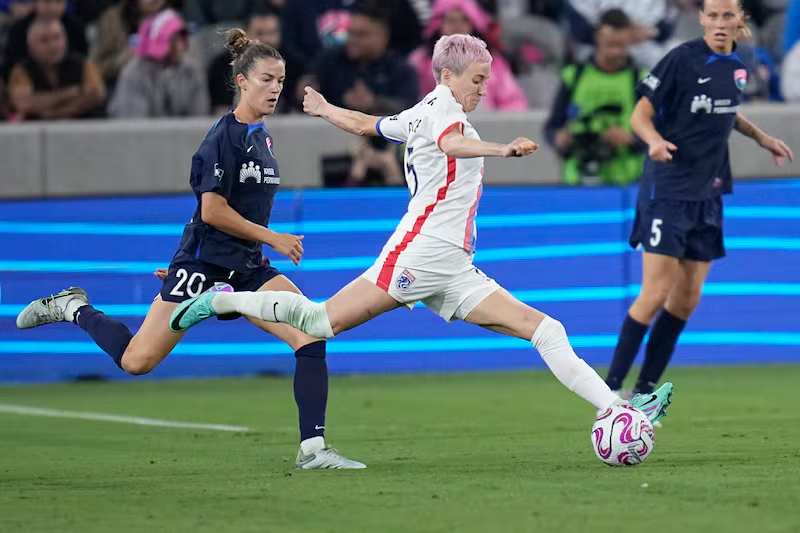Once relegated to the sidelines, women’s professional soccer is experiencing a meteoric rise, attracting the attention of deep-pocketed private equity firms. This influx of capital signifies a major shift in the sport’s landscape, promising a brighter future for players, fans, and the league itself.
Why the Sudden Interest?
For years, Major League Soccer (MLS), the National Basketball Association (NBA), Major League Baseball (MLB), and the National Hockey League (NHL) have all embraced private equity investment, allowing these firms to take passive minority stakes in teams. However, the National Women’s Soccer League (NWSL) is breaking new ground by permitting these investors to hold majority control of a team’s financial operations.
“This is an opportunity to truly fuel the growth of our league,” declared Jessica Berman, commissioner of the NWSL, in a recent CNBC interview. This sentiment underscores the league’s strategic decision to leverage private equity as a powerful engine for financial stability and expansion.
Record-Breaking Deals and Soaring Valuations:
The arrival of private equity has already ignited a bidding war. Sixth Street, a prominent investment firm, made history last year by establishing the San Francisco-based Bay FC, the NWSL’s 14th franchise, for a record-breaking $54 million.
Just weeks ago, another landmark deal materialized. Carlyle Group, a global private equity giant, partnered with the Seattle Sounders FC (MLS) to acquire its NWSL counterpart, the Reign FC. The deal, valued at a staggering $58 million, dwarfs the team’s measly $3.5 million price tag from just five years ago.
What’s Driving the Price Surge?
This dramatic rise in valuations isn’t just a Wall Street whim. Attendance figures for the NWSL have skyrocketed by over 40% this year, reflecting a surge in fan interest and engagement. Alex Popov, head of private credit at Carlyle, sees this as a clear sign of the league’s momentum: “We’re witnessing a turning point, and it’s happening for the right reasons.”

Beyond the Stands: A Broader Financial Picture
While broadcast rights currently generate the lion’s share of revenue for men’s professional sports leagues, women’s sports rely more heavily on merchandising sales, ticket sales, and partnerships. However, the tide is starting to turn. The NWSL recently secured a $240 million, four-year media deal, a staggering 40-fold increase from the league’s previous agreement. While still a fraction of what MLS earns in broadcasting rights, this development represents a significant step forward for the NWSL.
A Bright Future Beckons:
The bullish sentiment surrounding women’s soccer extends beyond traditional media. Disney CEO Bob Iger and his wife, Willow Bay, are reportedly close to finalizing a deal to acquire Angel City FC for a jaw-dropping $250 million. This potential acquisition would shatter all valuation records for a women’s sports franchise.
The NWSL, however, is approaching this influx of capital with a cautious yet optimistic outlook. As Commissioner Berman acknowledges, “We’re navigating this carefully. Private equity firms operate differently compared to individual owners who have traditionally been responsible for teams in local markets.” The league is keen on learning from this experience and establishing a framework for sustainable, responsible investment from private equity firms.
The Road Ahead: A League in Transition
The NWSL’s bold experiment with private equity ownership is being closely watched by other major leagues. While the NBA, MLB, NHL, and MLS already permit private equity investment (up to 30% ownership), the NFL is currently embroiled in a heated debate on this very issue.
With record-breaking valuations, soaring attendance, and a growing media presence, women’s professional soccer is on the cusp of a golden age. The strategic partnership with private equity firms is a calculated gamble, one that holds immense potential to propel the sport to new heights. As the NWSL continues to refine its approach, one thing remains certain: the future of women’s soccer is undeniably bright.



